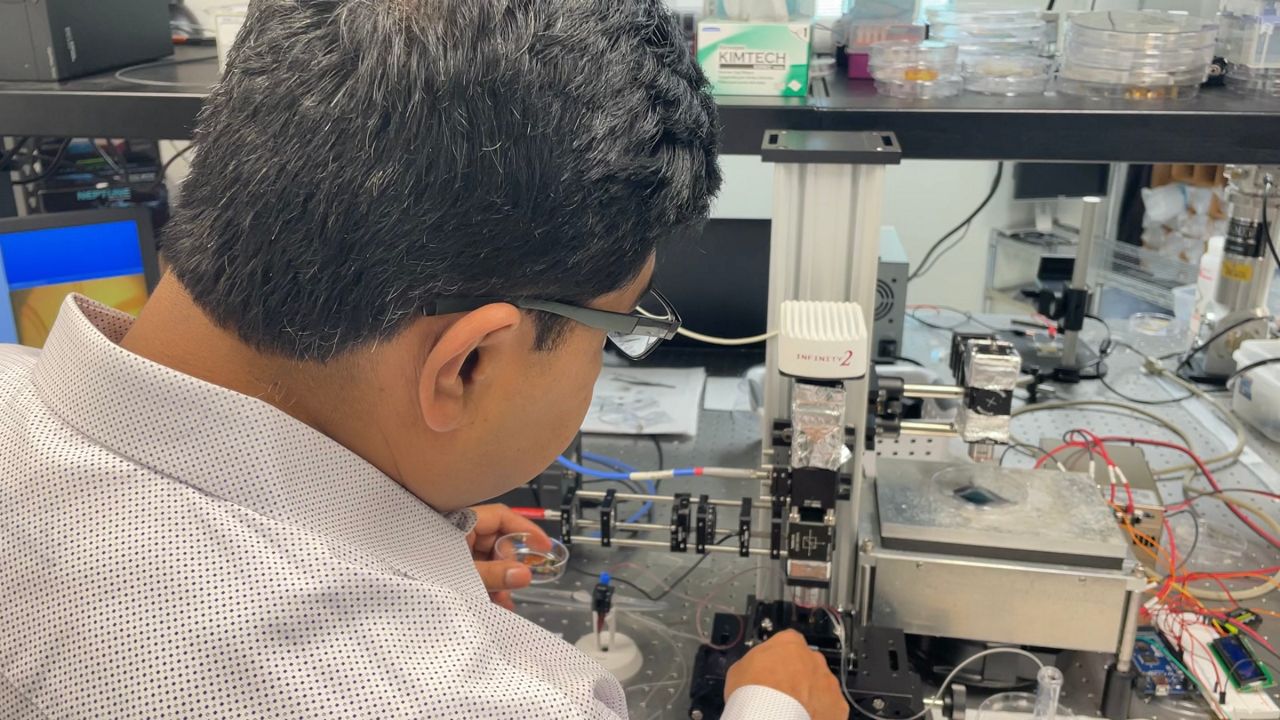ORLANDO, Fla. — A new device created by University of Central Florida researchers could make testing for the COVID-19 a lot faster and just as accurate as a PCR test.
What You Need To Know
- Researchers at UCF have created a new COVID-19 test using nanotechnology
- The testing process was first used to detect the dengue virus
- Officials say the test returns rapid results with 95% accuracy
The device uses nanotechnology to test blood sample and detect a virus as long as the genetic information and viral component is available.
Debashis Chanda, a UCF professor of physics and nanoscience technology, developed the test with his team. Growing up in India, he said he always wanted to make a difference through science.
He said his team first began to conduct its research back in 2017, testing cow blood for the dengue virus.
“Dengue is a model virus, it appears each year around the world and that effects millions of people in many places,” Chanda said. “So, that’s actually what motivated us to go after a virus that is known and appears each year that’s something we wanted to study.”
What they found was their device provided rapid results with 95% accuracy.
The next step is to test it on human blood, but Chanda said he doesn’t expect to see different results.
Researcher also want to adjust their device to make it able to detect any virus or disease, but Chanda said more funding is needed to move onto that phase.
“Each square (on the device) could be made to detect various virus trends,” he said.
Chanda said that would include the coronavirus, and with the proper genetic information and viral component, they would be able to detect the exact COVID-19 variant.
He said it would be as accurate as any gold-standard PCR test, but would produce results much more quickly.
So far, Chanda's team has received funding from the National Science Foundation and UCF’s COVID-19 Artificial Intelligence and Big Data.



